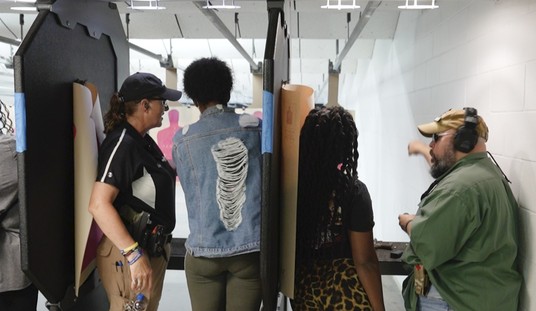The music publishers and songwriters failed in their attempt to shakedown digital radio providers in March, when a federal judge rejected their arguments, so now three Republican senators are taking up the banner of crony capitalism for them on Capitol Hill.
Standing together May 12 in Nashville’s Bluebird Café, Sen. Robert P. Corker and Sen. A. Lamar Alexander from Tennessee, home of too many songwriters, joined by Utah’s Sen. Orrin G. Hatch, a songwriter himself, announced that they filed a bill, the “Songwriter Equity Act.”
Hatch said the law was needed because the music business is really tough.
“The music business is one of the toughest industries out there and our songwriters and composers shouldn’t have to accept artificially low royalty rates for their works,” he said.
“Allowing them to receive the fair market value for their songs is the right thing to do, and I’m pleased to support this bill that will do just that,” he said.
For the two Volunteer State senators, it was more than rigging the game for a hometown industry, but it was really about rigging the game for a hometown industry.
“There’s no place where the music industry is more vibrant than in Tennessee,” Corker said.
“We are blessed with talented songwriters, musicians, and small and large businesses that work to bring to life the music we enjoy each day,” Corker said. “As technology advances, it’s important we not forget the sometimes unsung heroes of the music industry – the songwriters – and modernize the way they are compensated for their talents.”
Alexander seemed to be somewhere else.
Alexander said: “Italy has its art, Egypt has its pyramids, Napa Valley has its wines and Nashville has its songwriters. Songwriters are the lifeblood of Music City, and their paychecks ought to be based on the fair market value of their songs – so that when they write a hit heard around the world, you can see it in their billfolds.”
The Songwriter Equity Act, and its companion House bill, reverse the 136-page decision handed down by Judge Denise L. Cote. The case was between the American Society of Composers, Authors and Publishers and Pandora, the largest digital radio service. ASCAP wanted Pandora to pay 3 percent of revenues as a composition royalty and Pandora wanted to pay 1.7 percent. Cote ruled that Pandora should be 1.85 percent.
This is not the only royalty Pandora or other digital radio services pay. While broadcast radio stations pay no performance royalty, Pandora and its competitors pay 50 percent of their revenues to the SoundExchange, a wholly-owned creation of the Recording Industry Association of America.
ASCAP was founded more than 100 years ago and it is the largest performance rights organization. These PRO’s are collectives that offer centralized administration for composition royalties.
Critical to that reversal is the provision in the Corker-Alexander-Hatch bill that directs the Copyright Royalty Board, three-man panel appointed by the Librarian of Congress James H. Billington that rules on royalty payments, to consider the rates paid for new sound recordings, when deciding composition royalty rates.
In the mid-1990s, the publishers and songwriters lobbied for legislation that forbade the CRB or other courts from considering new sound recording royalties in their decisions. The feeling then was that if the value of new sound recordings was going down, it would drag down composition royalty rates. But, now as revenues from digital streaming and downloads are increasing, the publishers and songwriters want the blinders taken off.
Like in other parts of intellectual property law, the proposed legislation is attempt to game the system. Not to mention the absurdity of a law that would direct a panel how to set a “fair market price,” when every student, who passed Microeconomics 101, knows the market sets the market price.
In her decision, Cote heard all the arguments the senators of making and she pretty much said the only reason the publishers and songwriters want to change the rules is that Pandora is making money—and how much Pandora is paying in performance royalties–and they want a piece of their action.
Even though Cote was forbidden by law from considering the performance royalties in determining a rate for the composition royalties, the judge said she did not understand why a performance royalty would influence the value of a composition royalty in the first place, and in the second place, ASCAP offered no reasonable explanation for the connection.
This is a legal dead end for the PRO’s. But, help is on the way. Enter our three GOP champions of crony capitalism riding to change the law for their pals.








Join the conversation as a VIP Member